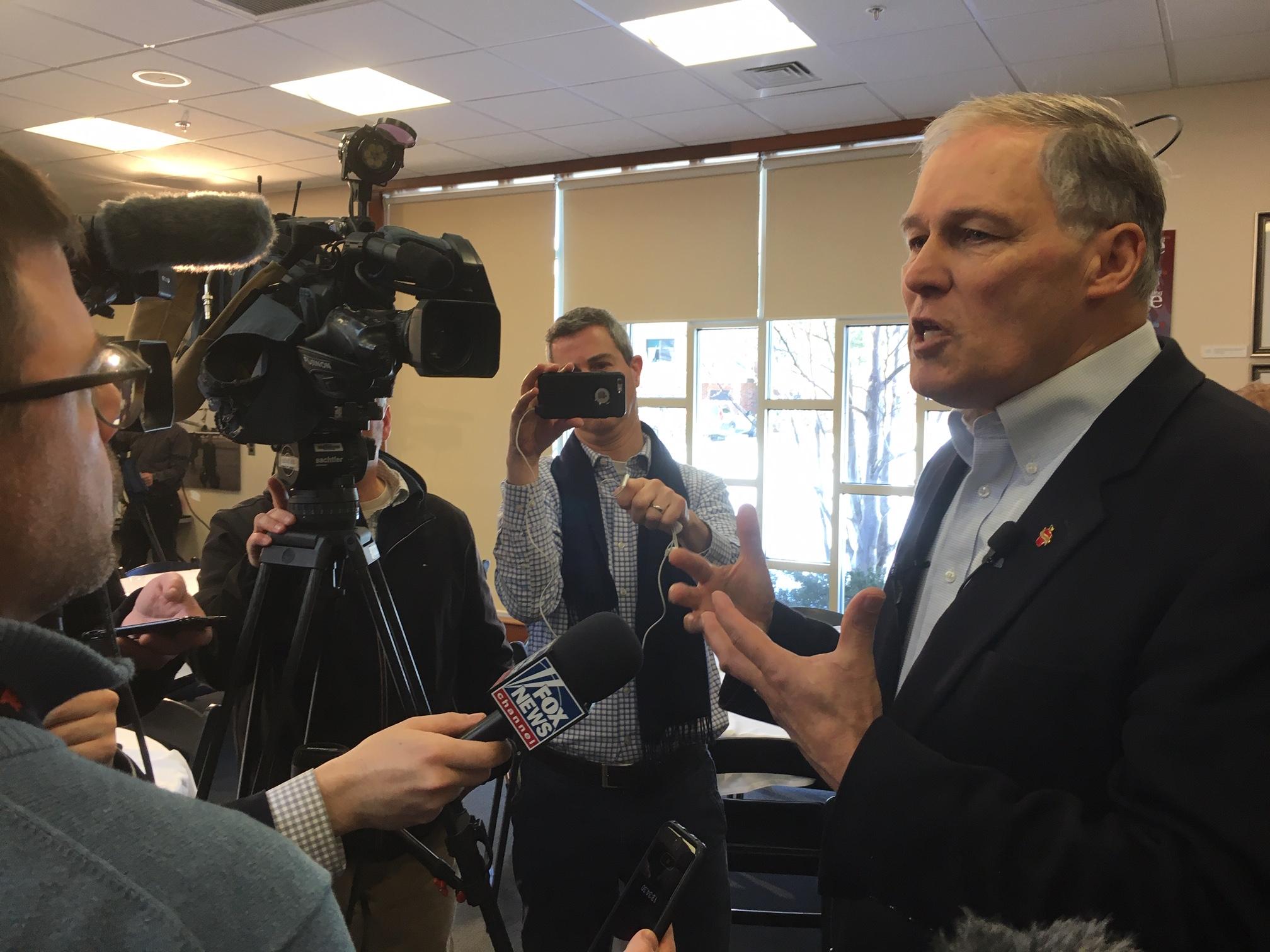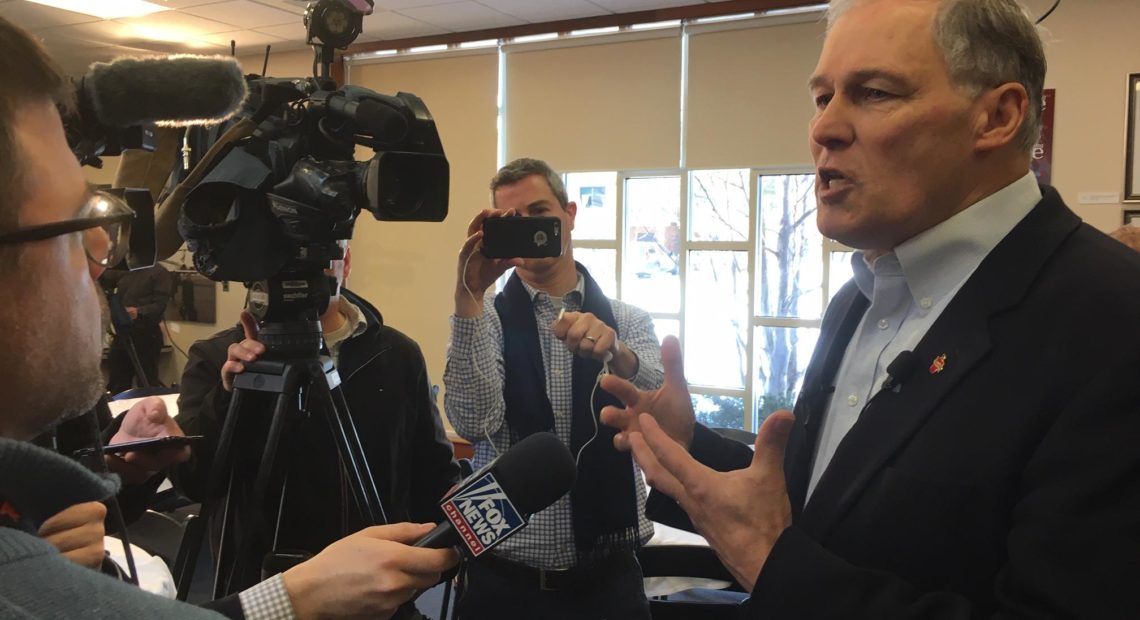
Washington Man Calls Foul, Says He Was Blocked From Jay Inslee’s Facebook Page
READ ON
A Tri-Cities man who has been a frequent online critic of Washington Gov. Jay Inslee said he was blocked this month from commenting on Inslee’s campaign Facebook page. The move comes as Inslee, a Democrat, launches his candidacy for president and his campaign says its working to make his Facebook page “a little less toxic.”
However, the American Civil Liberties Union of Washington has previously warned elected officials, including Inslee, that blocking constituents on social media could amount to “unconstitutional censorship.”
Last year, a federal judge in New York ruled that President Donald Trump had violated the First Amendment rights of people he blocked on Twitter.
Jeff Kruger, a developer and builder in Kennewick, said he noticed on March 7, six days after Inslee announced his bid for president, that he could no longer post comments to Inslee’s non-official Facebook page and that his previous posts had been deleted.
“I find it offensive that the highest elected official in the state violated my constitutional rights, but I find it even more so as a presidential candidate, especially when our sitting president has basically been slapped and lost a lawsuit for this same kind of action,” Kruger said in an interview.
Inslee frequently uses his @jayinslee Facebook page, which was created in 2007, to discuss climate change, criticize President Donald Trump and post about political and policy issues. In recent weeks, the page has been devoted to his fledgling campaign for president. A scan of that Facebook page this week revealed comments both praising and criticizing Inslee.
Kruger said he actively engages with Northwest politicians and participates in Facebook’s “town hall” function which allows him to follow his elected officials. He has also given Facebook his address so that he can be identified with a “constituent badge” when he comments on the Facebook pages of politicians who represent him.
Kruger, a self-described conservative with libertarian leanings, said he frequently levels criticism at Democrats, including Inslee and U.S. Sen. Patty Murray. But he also defended his online comments as appropriate.
“Never any profanity, never anything threatening, nothing I would be ashamed if one of my kids read it,” Kruger said of his posts.
Kruger has filed a tort claim, a precursor to a lawsuit, against Inslee in his official capacity as governor. He also alerted the Benton County, Washington prosecutor and sent a letter to Attorney General Bob Ferguson.
In a statement, campaign spokesman Jamal Raad said: “Jay Inslee’s campaign Facebook page is moderated to ensure there is a healthy, vibrant, civil and productive conversation and discussion on the need to make defeating climate change the top priority of the United States.”
Raad would not confirm whether the campaign has started blocking critics, but in a follow up email said, “We are trying to make Facebook, at least our Facebook page, a little less toxic.”
Kruger said around the same time he was blocked on Inslee’s campaign page, he noticed that the number of comments on some of Inslee’s more recent Facebook posts seemed to have gone down, not up since the last time he looked.
“Because the post count was so much less, I can only assume that quite a few regular critics must have been blocked at about the same time,” Kruger said.
As governor, Inslee also has an official @WaStateGov Facebook page. Kruger isn’t blocked from that page and recently posted there about being blocked on the @jayinslee page. A spokeswoman for the governor’s office said their policy is not to block anyone from social media.
Last November, the ACLU sent Washington lawmakers a letter warning them that it’s unconstitutional to block constituents from social media pages — even non-official pages — where they discuss matters pertaining to their public office. Inslee was copied on the letter.
Describing social media platforms as virtual town squares, the ACLU letter said: “While lawmakers may reasonably regulate speech on such forums, they may not censor or block speakers based on those speakers criticizing or disagreeing with their viewpoints.”
The letter cited a 2017 U.S. Supreme Court case, Packingham v. North Carolina, that recognized sites like Facebook and Twitter as “perhaps the most powerful mechanisms available to a private citizen to make his or her voice heard.”
Alison Holcomb, the political director for the ACLU of Washington, said it’s allowable for politicians to edit off-topic or offensive social media comments in response to their posts, but not to block followers.
“If you are an elected, public official your best strategy is never to block somebody from weighing in on a social platform that you have created,” Holcomb said, “but instead to have your administrators review any post that might fall outside of a comment on a public matter or may be threatening or harassing.”
In court, Inslee would likely argue the page is now being used to promote his presidential campaign and is unrelated to his official work as governor, and therefore does not constitute a “limited public forum” where First Amendment rights are protected.
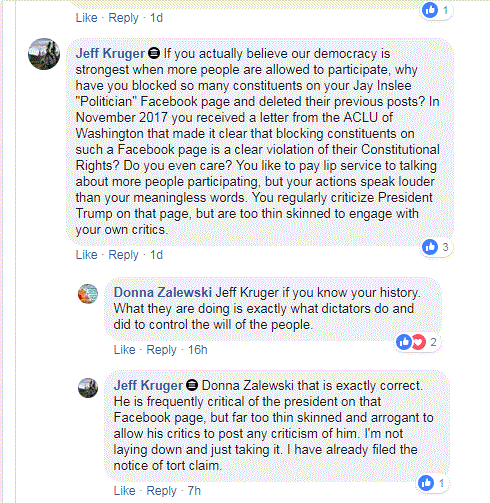
Jeff Kruger posted to Gov. Jay Inslee’s official Facebook page after he was blocked from posting on Inslee’s campaign page.
In Washington, the ACLU has not filed lawsuits over social media censorship, but the organization has settled cases against the governors of Maryland and Maine for blocking people on Facebook.
Last October, two Washington residents filed a lawsuit against Republican state Rep. Jim Walsh of Aberdeen for “unlawful censorship” after he blocked them from his politician Facebook page.
In response, Walsh took to Facebook to call the lawsuit a “stunt” and said he had blocked the men for their “uncivil comments” and said they were seeking the right “to act like monkeys in a cage, throwing feces.”
There has not yet been a ruling in that case.
Last May, in a lawsuit brought by the Knight First Amendment Institute, a federal judge found in favor of seven plaintiffs who sued after President Trump blocked them on Twitter. The president has since unblocked them, but the federal government is appealing the ruling.
In January of this year, a federal appeals court ruled against a Virginia county official who briefly blocked a critic on Facebook.
Copyright 2019 Northwest News Network
Related Stories:
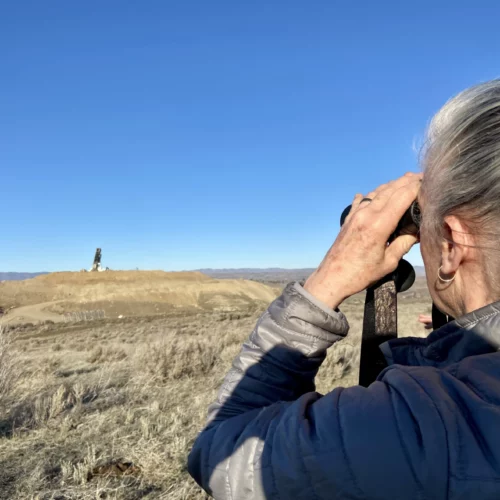
Washington state bill could strengthen regulations, increase fines for ‘troublesome’ landfills
While hiking, Nancy Lust, with Friends of Rocky Top, watches a truck dump waste into a landfill in Yakima County. Lust lives near the landfill and has fought to learn

This bill could give Washington tribes, communities more say in wind, solar development
A new bill making its way through the Washington Legislature would require county and tribal approval for new wind and solar projects that go through the state’s Energy Facility Site
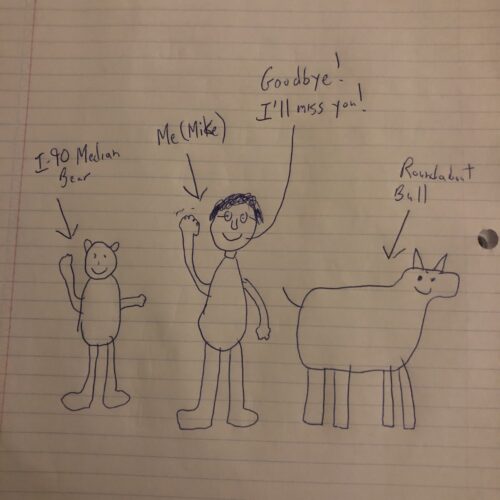
Mr. WSDOT — the man who’s helped make road alerts interesting and ‘artistic’ — is heading to a new job
When Mike Allende started managing social media for the Washington State Department of Transportation, he was told “don’t be boring.”
“Boring” is probably the last word any one would use to describe Allende’s approach to the job, which massively grew engagement while he worked there. Known by some fans as Mr. WSDOT, he’s the man behind the most followed state department of transportation Twitter, or X, account nationwide, with some 543,000 followers on the department’s traffic page.

